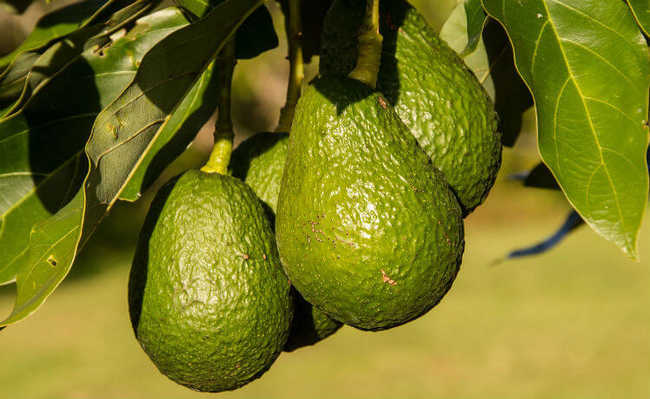Are natural juices harmful like soft drinks?
In small doses, natural juices provide vitamins, nutrients, antioxidants and improve immunity, brain function, blood pressure and cholesterol

Edited and resized image by Olivier Guillard is available on Unsplash
Natural juices are normally part of a healthy diet. Some health organizations have issued official statements encouraging people to reduce their consumption of sugary drinks, and several countries have even implemented a tax on soft drinks (see studies on this: 1, 2).
However, some people suggest that natural juices may not be ideal for a healthy diet because, although they are natural and contain large amounts of nutrients, they are low in fiber and high in sugar.
However, studies have concluded that soda increases the risk of developing disease even in small doses, while the consumption of natural juices in small amounts (less than 150 ml per day) can reduce the risk of diseases such as type 2 diabetes and heart disease ( check out the study about it here: 2), in addition to providing nutrients, antioxidants and improving immunity, brain function, blood pressure and bad cholesterol.
Both are high in sugar, but soda is worse
One of the main reasons some people find natural juices harmful is their sugar content. Both soft drinks and natural juices contain about 110 calories and 20 to 26 grams of sugar per cup, about 240 ml (see studies on this: 3, 4).
Several studies have shown a link between sugary drinks and an increased risk of developing diseases such as type 2 diabetes, metabolic syndrome, high blood pressure and heart disease, as well as an increased risk of premature death (see studies on this: 5, 6 , 7, 8 and 9).
- Sugar: the newest health villain
- Diabetes: what it is, types and symptoms
Due to the similar amount of sugar, some people have come to find natural juices and soft drinks equally harmful. However, soft drinks and juices are unlikely to affect health in the same way (see study about it here: 2).
Soda tends to increase the risk of illness in a dose-dependent manner. This means that the more soda you drink, the greater your risk of developing disease - even if you only drink small amounts.
On the other hand, drinking small amounts of natural juices - specifically less than 150 ml per day - can lower the risk of diseases such as type 2 diabetes and heart disease. Only the highest intake seems harmful to your health (see study about it here: 2). But it's important to note that the health benefits of consuming natural juices apply only to 100% fruit-based juices - not to sugary juices.
Both can lead to weight gain.
Fruit juices and sugary soda can increase your risk of weight gain. This is because both are high in calories and low in fiber, a nutrient that helps reduce hunger and promote feelings of fullness (10, 11, 12).
- Fiber-rich foods fight diabetes and high cholesterol
Therefore, it is unlikely that the calories consumed in the form of soda or fruit juices reach an equal number of calories consumed from a fiber-rich food with the same amount of sugar as a piece of fruit (see study on this: 13) .
- Calories: do they matter?
Also, eating calories in the form of a drink - rather than solid food - can increase your risk of weight gain. Experts believe this is likely because most people don't make up for these liquid calories by eating fewer calories from other foods - unless they make a conscious effort (see studies on this here: 14, 15).
That said, only excess calories lead to weight gain. Therefore, it is important to mention that consuming small amounts of beverages that contain calories will not automatically lead to weight gain in most people.
Fruit juices are rich in nutrients
Fruit juices contain vitamins, minerals and beneficial compounds (see study about it here: 16). Half a cup (120 ml) of fruit juices is as rich in most vitamins and minerals, including iron, potassium, magnesium and B vitamins, as the same amount of fresh fruit (see studies on this: 4,16,17) .
- Vitamins: types, needs and times of intake
- What are iron rich foods?
- Magnesium: what is it for?
Remember that many nutrients degrade over time. Therefore, freshly squeezed juices are likely to contain higher levels of vitamins and minerals than other juice varieties. Still, all 100% natural juices have higher levels of nutrients than sugary soda.
Likewise, fruit juices contain beneficial plant compounds such as carotenoids, polyphenols and flavonoids that can help neutralize free radicals and reduce the risk of disease (2, 6, 18, 19).
This may explain why various types of fruit juices are linked to health benefits, ranging from improved immunity and brain function to lower levels of inflammation, blood pressure and LDL (bad) cholesterol (see studies about it here: 20, 21, 22, 23, 24).
- Antioxidants: what are they and in what foods to find them
However, these benefits are more accentuated when natural juices are consumed in amounts of up to 150 ml per day (see study about it here: 2).










